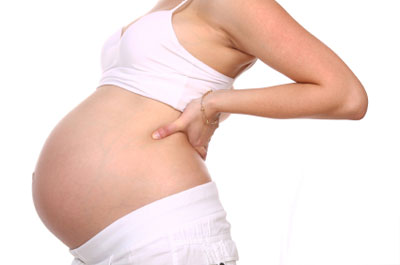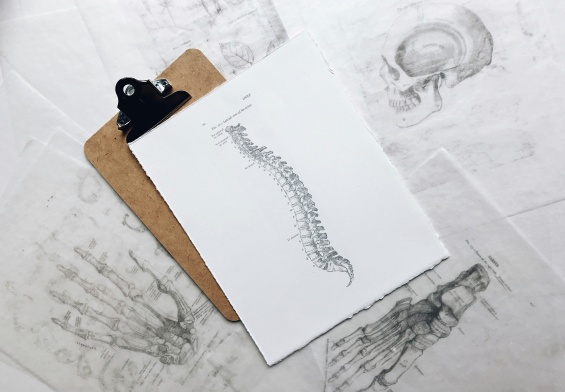 “Pregnancy is a construction zone going on in your belly!” Could anyone have put it better than TV’s Al Roker? Unfortunately, ‘constructing’ a baby not only affects a pregnant woman’s stomach, but literally every other part of her body as well. And nowhere is that felt more than in her back. If you’ve ever been pregnant, you probably won’t be surprised to learn that more than 70 percent of Essex County women have experienced back pain during pregnancy. Women can experience back pain at any time during pregnancy; however, it is most prevalent in the later months as baby’s weight increases. Back pain during pregnancy can affect your ability to perform your daily functions, your sleep, your health, and it can also affect your baby. What you may not know are the myriad causes, and maybe more important, the treatments.
“Pregnancy is a construction zone going on in your belly!” Could anyone have put it better than TV’s Al Roker? Unfortunately, ‘constructing’ a baby not only affects a pregnant woman’s stomach, but literally every other part of her body as well. And nowhere is that felt more than in her back. If you’ve ever been pregnant, you probably won’t be surprised to learn that more than 70 percent of Essex County women have experienced back pain during pregnancy. Women can experience back pain at any time during pregnancy; however, it is most prevalent in the later months as baby’s weight increases. Back pain during pregnancy can affect your ability to perform your daily functions, your sleep, your health, and it can also affect your baby. What you may not know are the myriad causes, and maybe more important, the treatments.
Causes of back pain
Anyone who has taken a physics class knows about center of gravity. The fact is that, even though your baby is very tiny, as your pregnancy progresses your uterus grows, and this growth actually shifts your center of gravity. That shift can cause back pain. It can also weaken your abdominal muscles, affecting your posture while sitting and standing, and this difference will put more of a strain on your back. Of course, pregnancy often means extra weight, which also adds to the stress on your back and on your joints. Another cause for your back pain could be that some of these changes in your body have putting pressure on a nerve. Hormonal changes during pregnancy also can loosen ligaments and joints that connect the pelvis to the spine. This loosening can give you an unsteady feeling as you move.
Types of back pain
Most pregnant women experience most or all of their back pain in the lower back area, usually occurring as one (or both) of two main types of pain. These are posterior pelvic pain and lumbar pain. The first, posterior pelvic pain, is felt mostly in the back of your pelvis. This type of pain is often felt inside the buttocks and can occur on the backs of your thighs. It usually starts with such activities as climbing stairs, getting in or out of a low place such as a tub or a low chair, or even twisting or walking.
Lumbar pain is usually in the back at about waist level. This pain can often radiate to your legs. Lifting can cause lumbar pain. You can also feel it if you stand or sit for a long period of time, and it often feels worse by the end of the day.
Treatment for back pain
There are some things pregnant women can do to ease back pain. (As with all treatments, especially during pregnancy, consult with your healthcare professional first.)
Exercise: Regular light exercise can increase flexibility and strengthen muscles, all of which can alleviate stress on the spine.
Chiropractic: If done by a professional, chiropractic manipulation of the spine can be a safe treatment for back pain during pregnancy.
Cold/heat: Applying cold or heat to your back can be an effective treatment for pregnancy back pain. Wrap a bag of ice in a towel, and then place it on the painful area. Keep it on for up to 20 minutes. This can be done several times a day. Then switch to using a heating pad. Never apply a heating pad to your abdomen during pregnancy. It is very important that you consult your healthcare professional for any of these treatments.
If your back pain persists, you should contact your doctor, especially if you experience severe or sudden pain, and/or rhythmic cramping pains, as these may be a sign of preterm labor. Severe back pain can also be related to conditions such as pregnancy-associated vertebral osteoarthritis, osteoporosis, or septic arthritis. These can be serious if not attended to by your physician.
There are rare instances when back pain during pregnancy is caused by a herniated disc, in which case putting off surgery can mean that the symptoms, such as numbness, pain, and even incontinence, will be permanent. Lumbar surgery can be safe during pregnancy. It is possible you will need a referral to a spinal or orthopedic surgeon for consultation. Suffering from back pain during pregnancy does not have to be a foregone conclusion.



